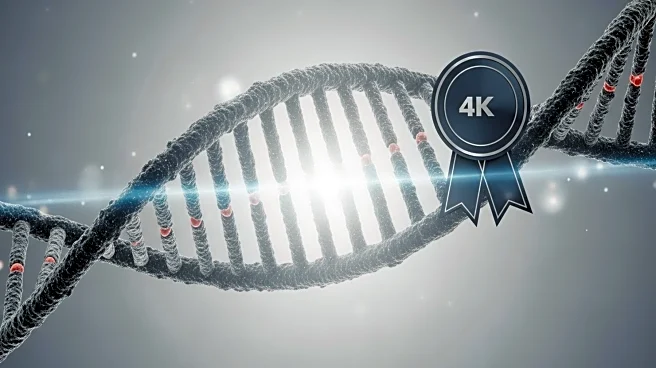What is the story about?
What's Happening?
The American Society of Human Genetics (ASHG) has announced the recipients of its 2025 Professional Awards, honoring individuals for their contributions to human genetics research, leadership, and mentorship. The awards will be presented at the ASHG annual meeting in Boston, MA, from October 14-18. Among the honorees are Harry Dietz, recognized for his work on Marfan Syndrome, and Eric Green, noted for his leadership in genomics research. Other awardees include Mike Talkowski for scientific achievements, Elizabeth Bhoj for early career contributions, and Audrey Hendricks for educational efforts. The awards highlight the innovative and collaborative spirit driving advancements in human genetics.
Why It's Important?
These awards underscore the critical role of genetics research in advancing medical science and improving public health. By recognizing leaders in the field, ASHG highlights the importance of continued investment in genetics research and education. The honorees' work contributes to understanding genetic disorders, developing new treatments, and fostering the next generation of scientists. This recognition can inspire further research and collaboration, potentially leading to breakthroughs in genetic medicine and personalized healthcare.
What's Next?
The ASHG annual meeting will serve as a platform for these leaders to share their insights and foster collaboration among researchers, educators, and policymakers. The event may lead to new partnerships and initiatives aimed at advancing human genetics research. As these awardees continue their work, they are likely to influence future research directions and policy decisions in genetics and genomics.
Beyond the Headlines
The recognition of these individuals also highlights the ethical and societal implications of genetics research. As the field advances, it raises questions about privacy, data security, and the equitable distribution of genetic technologies. These awards may prompt discussions on how to address these challenges while maximizing the benefits of genetic research for society.

















